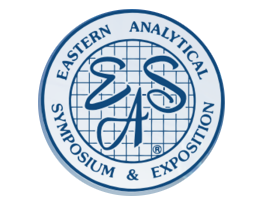Merlin Bruening is a Professor of Chemistry at Michigan State University. He received a B.S. in Chemical Engineering in 1989 and an M.S. in Chemistry in 1990 from Brigham Young University. In 1995, Dr. Bruening obtained his Ph.D. in Chemistry from the Weizmann Institute of Science in Rohovot, Israel, where he worked under the direction of Abraham Shanzer. After an NIH Postdoctoral Fellowship at Texas A&M University with Richard Crooks, Merlin joined the faculty at Michigan State University in 1997. He has been a full professor since 2007.
The Bruening research group develops functional this films and membranes for applications in chemical analysis, separations, and catalysis. In most cases the separations and catalytic reactions occur in micro- or nano-porous membranes. These highly porous materials enable microchemistry in macroscopic quantities for preparative as well as analytical applications. Different membranes created in the Bruening group afford monovalent/divalent ion-transport selectives as high as 20,000, fine control over protein digestion to facilitate antibody sequencing and detection of protein posttranslational modifications and rapid isolation of polyhistidine-tagged proteins in a new commercially licensed device. With these devices, protein purification from cell lysates occurs in minutes.
Functionalization of membranes and interfaces has included the development of techniques to controllably form thin films. Collaborating with the late Prof. Gregory Baker of MSU, the Bruening group created methods for room-temperature polymerization of polymer brushes and subsequent derivatization of these films. These methods employ atom-transfer radical polymerization with highly active catalysts aqueous solutions to give films with thicknesses of several hundred nm in just a few hours. Subsequent studies focused on modifying membranes though much simpler and more rapid layer-by-layer adsorption of polyelectrolytes.
Dr. Bruening is the author of over 130 journal publications and book chapters and several patent applications. He has served as the advisor to more than 40 graduate students and Postdoctoral Fellows, as well as 45 undergraduate and high school students. In 2015, Michigan State University selected Merlin for an Innovation of the Year Award based on his work on functionalized commercial membranes. He also received the 2014 MSU College of Natural Science Outstanding Faculty Award, the 2003 MS College of Natural Science Teacher-Scholar Award, and the 2000 Society for Electroanalytical Chemistry Young Investigator Award. Dr. Bruening’s teaching interests focus on problem-based learning in the senior-level instrumental analysis course. Frequently, projects include investigating new functional membranes for applications such as electrodialysis and protein capture and digestion.

